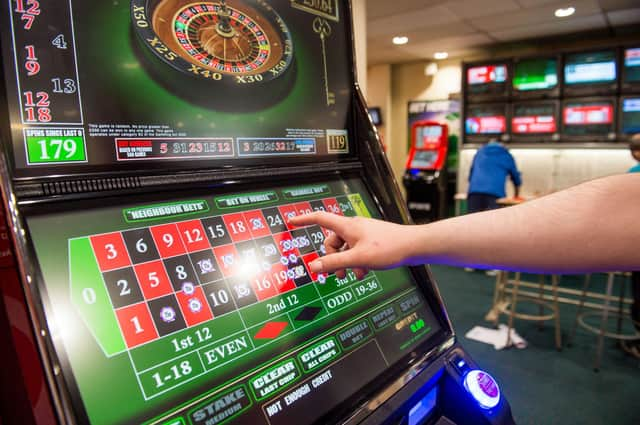Covid: How online gambling addiction has become an added threat to our health during the pandemic – Steve Cardownie


The hospitality sector in particular has taken a huge hit with bars, restaurants, hotels and cafes all forced to shut up shop until regulations are sufficiently relaxed to allow their re-opening. Some, however, have already signalled that their losses have been so great that they have decided to close for good.
Although the pandemic has heralded the closure of gambling venues like casinos, bingo halls and many betting shops, the online gambling industry has reaped the benefit and has seen a huge surge in subscribers, attributed to people being confined to their homes, with easy access to gambling sites.
The online betting industry has not been slow to react to the lockdowns with a noticeable increase in advertising on websites and social media in an effort to appeal to potential customers. For those suffering with a gambling addiction, this is an unwelcome consequence of the lockdown.
Advertisement
Hide AdAdvertisement
Hide AdA survey by the Gambling Commission published yesterday found that 0.3 per cent of all people who gamble have a “problem”, which means doing so “to a degree that compromises, disrupts or damages family, personal or recreational pursuits”, while a further 0.9 per cent were deemed to be at “moderate risk” and two per cent at “low risk”.
Given 42 per cent of adults surveyed said they had participated in at least one form of gambling in the previous four weeks, these figures represent large numbers of people.
There has also been research showing that problem gambling is even more common among those who take part in online sports betting and online gaming, such as roulette and blackjack.
This is partly attributed to the fact that gamblers get instant results without having to wait for a race or sporting event to finish and can place bets in quick succession, trying to make up losses immediately using credit cards instead of handing over cash, with 24/7 access via phones, laptops or computers.
Gambling addiction has proven to have a huge impact on the well-being and mental health of loved ones who may feel ashamed, angry, afraid and betrayed as money problems engulf the family and bills are left unpaid or household items are sold to fuel the habit.
The Royal College of Psychiatrists reported that problem gamblers are more likely to suffer from low self-esteem, develop stress-related disorders, become anxious, experience poor sleep patterns and a loss of appetite, to develop substance abuse problem and suffer from depression, which, in turn, disrupts family life.
Recent research has also revealed that there is a link between gambling problems and thoughts of suicide with more than double the amount of people affected by gambling problems saying that they have considered taking their own lives compared to those who do not suffer from a gambling issue.
Young people are not spared either with the Gambling Commission revealing in November 2018 that 1.7 per cent of children are classed as having a gambling problem and 14 per cent (equivalent to 450,000) of children aged between 11 to 16 bet more regularly than have taken drugs, smoked or drunk alcohol.
Advertisement
Hide AdAdvertisement
Hide AdHowever assistance is available and problem gamblers can access help from many different sources including the NHS, GamCare, which runs the National Gambling Helpline at 0808 8020 133, Gamblers Anonymous UK, which runs local support groups, and self-help tips can be found on the Royal College of Psychiatrists’ website.
A message from the Editor:
Thank you for reading this article. We're more reliant on your support than ever as the shift in consumer habits brought about by coronavirus impacts our advertisers.
If you haven't already, please consider supporting our trusted, fact-checked journalism by taking out a digital subscription.
Comments
Want to join the conversation? Please or to comment on this article.